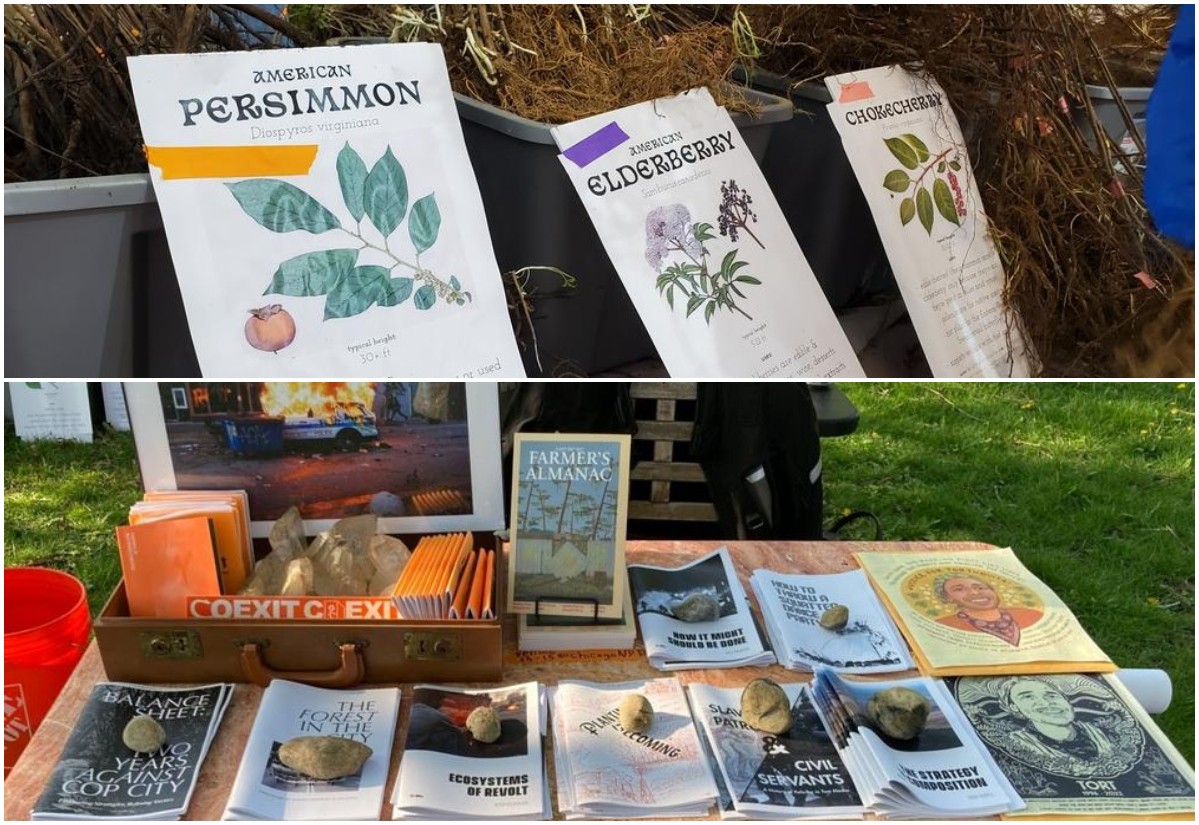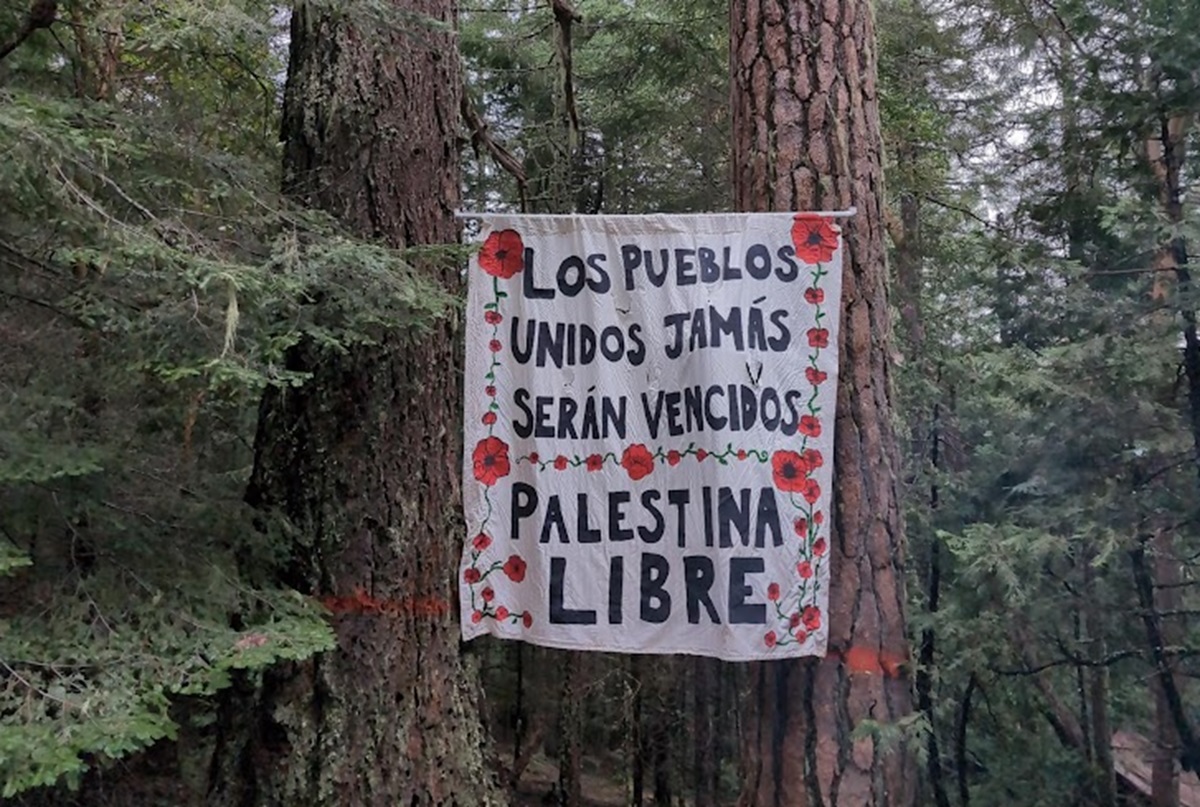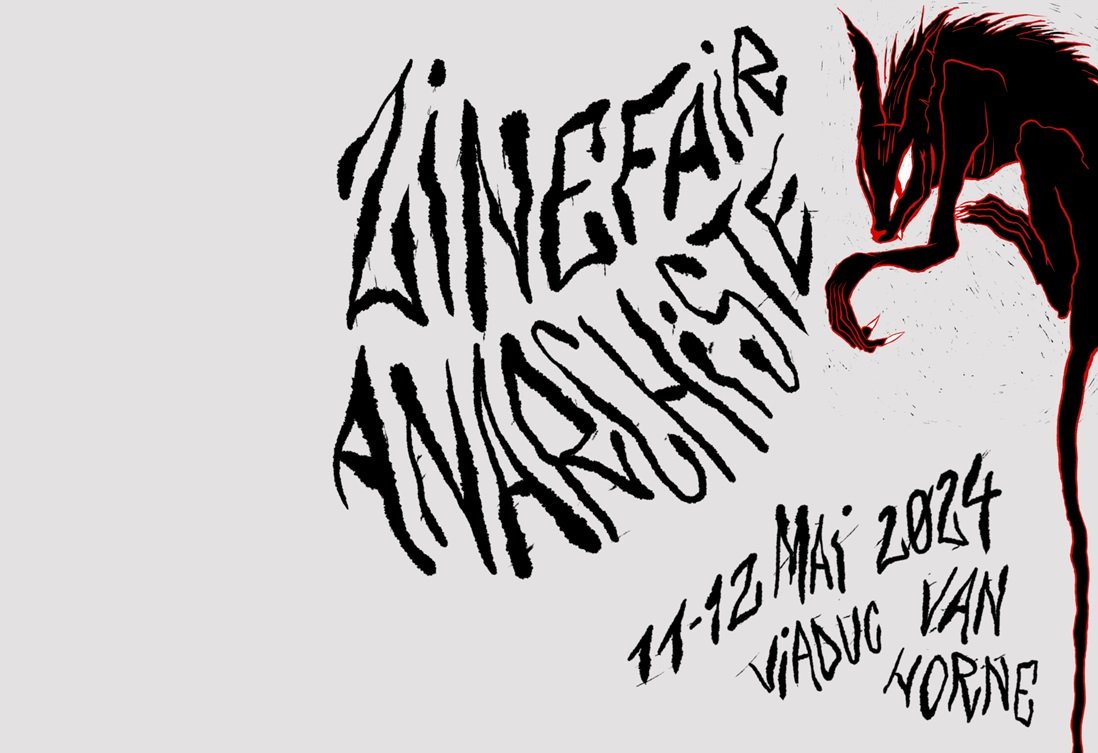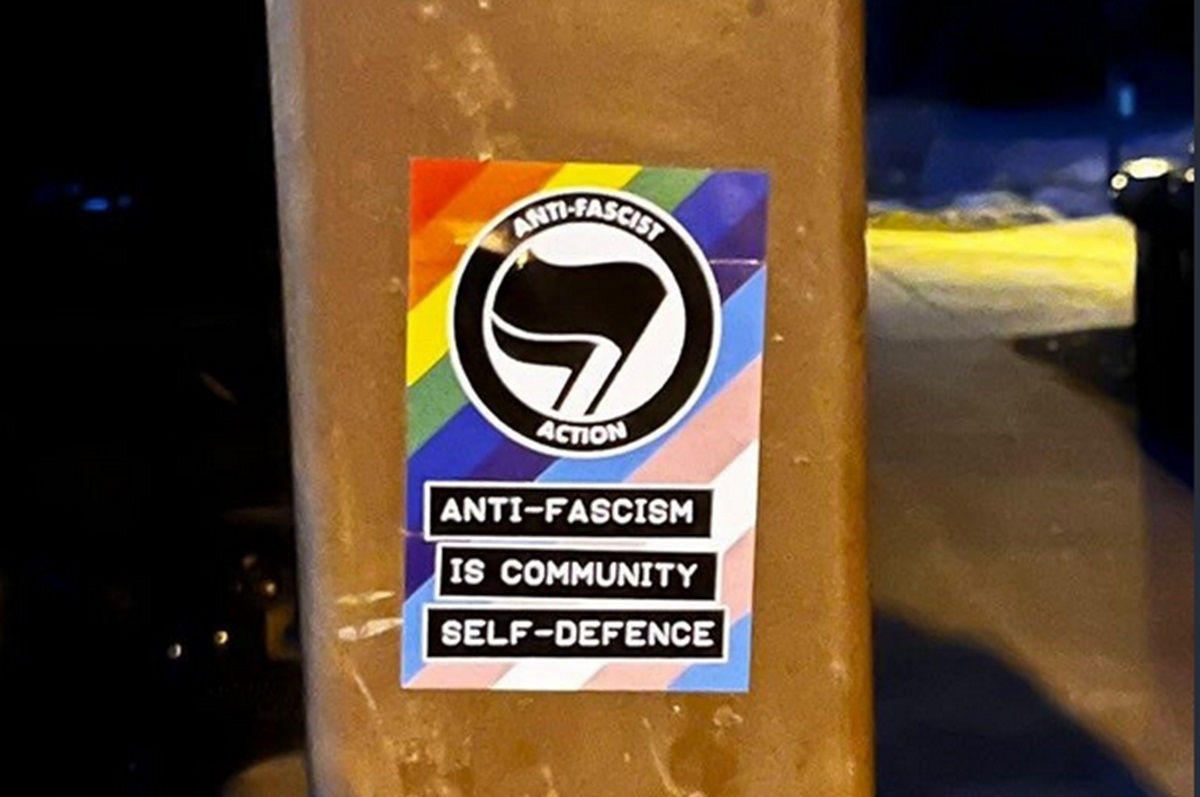Filed under: Action, Community Organizing, Midwest

Report on several autonomous events that distributed thousands of trees. Originally posted to Unsalted Counter-Info.
This spring saw a number of radical free tree distribution events across the great lakes region. Here are quick report-backs from just two of the many events that happened.
Chicago Tree Distro
This will be a brief reportback highlighting some of the methods, successes, and complications of Chicago’s tree distribution project, in hopes that we can share a bit of useful experience with others who want to do the same.
On distributing trees:
- We distributed nearly 2,000 trees with a combination of two “first-come, first-served” distribution events and a limited number of reserved tree orders for public or communal plantings.
- The reservation system got us connected with schools, churches, guerrilla gardeners, urban farms, ecological restoration projects, community gardens, and at least one land project out in the distant suburbs.
- The first-come, first-served format reduces some administrative overhead (no need to keep track of hundreds of specific tree orders), but does introduce a few complicating factors:
- You will either run out of trees, or you will have leftover trees. The latter is probably preferable; running out of trees can be discouraging to people who traveled to attend the distribution event. If at all possible, try to find somewhere that can accept your leftovers, whether that’s a farm or orchard or some large institution.
- There will probably be a huge rush at the beginning of your distribution event. However long you think it will take you to set up the event, give yourself double that time instead.
- Consider combining your tree distribution with some other event. Our first distro was just before a fundraiser dance party for Atlanta forest defenders; our second distro was at an outdoor rave in a public park. The second distro especially wound up with a lot of participation from people who hadn’t heard about it beforehand.
- Rather than labeling every tree with writing, consider a color-coding system. You can wrap a small strip of colored masking tape around each tree and have the color key listed on a handout and/or posted online.
On tabling:
- People were very enthusiastic about picking up zines at both events; don’t waste the opportunity to have a curated literature table!
On costs:
- We didn’t solicit donations; we had a donation jar and a Venmo account visible at the events and wound up making back roughly the amount we spent on the trees. Overall we spent more than we made, but I’d consider it worthwhile for the sake of trees planted and connections built.
- If we want to cover costs more thoroughly in the future, we might consider suggested donations and/or a system where individuals can pay a small fee to reserve trees in advance.
We’re still pretty exhausted from the effort of putting these events together and would like to write a more structured and comprehensive reportback soon, but hopefully this summary offers some useful insight.
Free Tree Saplings Distributed in Ypsilanti
We distributed approximately 500 very young saplings in Ypsilanti, entirely for free. The species distributed either produced something edible such as American Chestnut, or were primarily pollinators such as Redbud. People enjoyed food, music from a bluetooth speaker, and a free table of zines and Earthbound Farmer’s Almanacs. The trees were free to anyone who wanted them, but in an effort to prioritize typically marginalized people a BIPOC-only reservation form was used to set some trees aside.
Free tree giveaways are popular. The local county and cities have learned this and have done their own giveaways, though typically with lower tree limits and no species that produce food. Our tree giveaway has a more ambitious vision than distributing glorified lawn furniture, or greenwashing business as usual.
Distributing trees that produce food is a long-term investment in food autonomy, and an excellent opportunity to build community and connect other people thinking about these issues. Most trees won’t produce fruit for 5 years at least, but planting hundreds of them each year helps create conditions for abundance in the future. The tree giveaway is a hopeful step towards a future where more of our food is produced where we live and freely shared. A future where people repair, heal and tend to the ecosystems they’re in, rather than destroy them for profit. A future with more resilient communities better able to survive and push back against a future of domination from all sides and ecological destruction.
We got to meet new people, give away trees, have good conversations and enjoy pizza together. Overall the distro went well, and we hope to do it again next spring even better!





